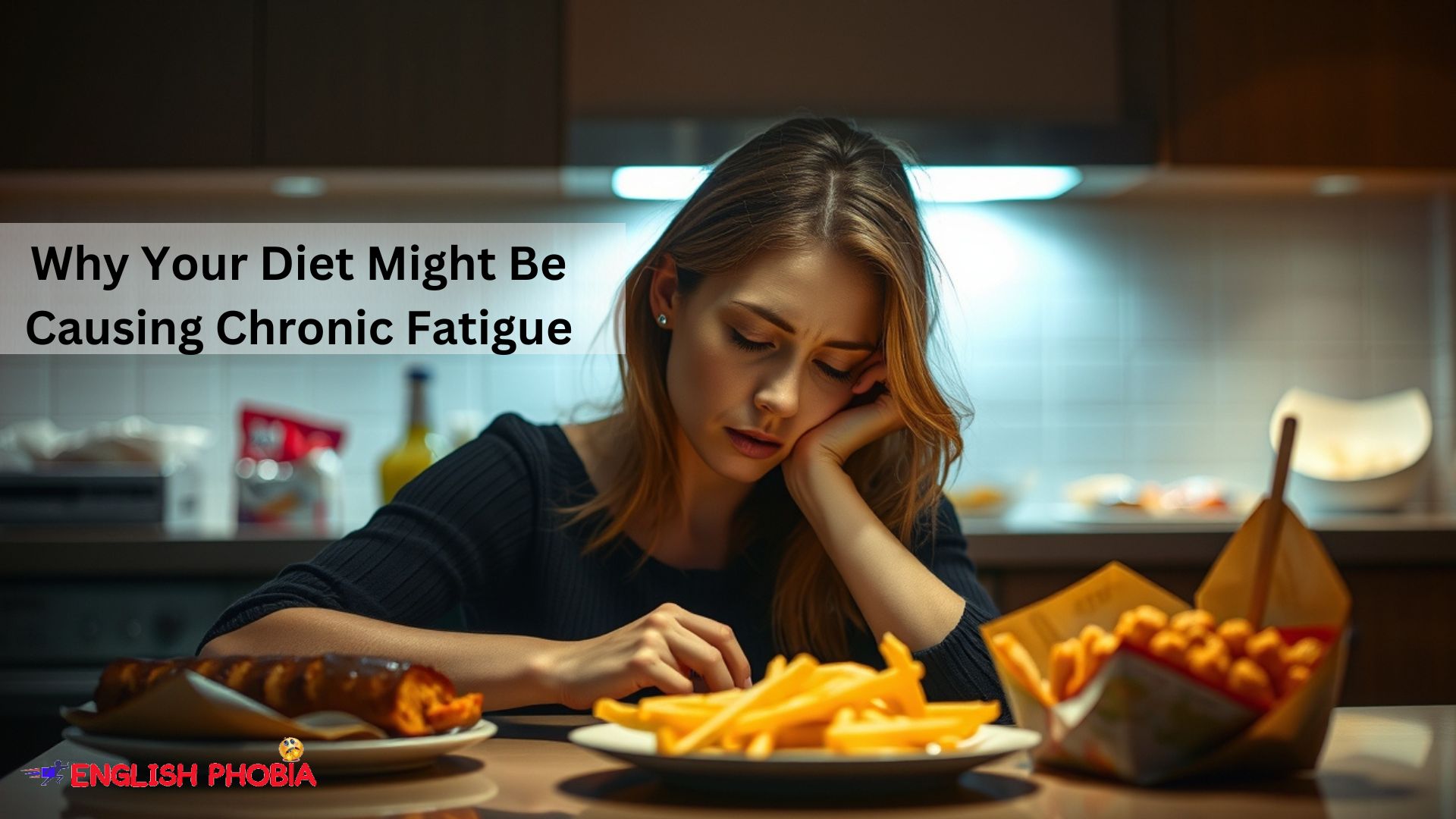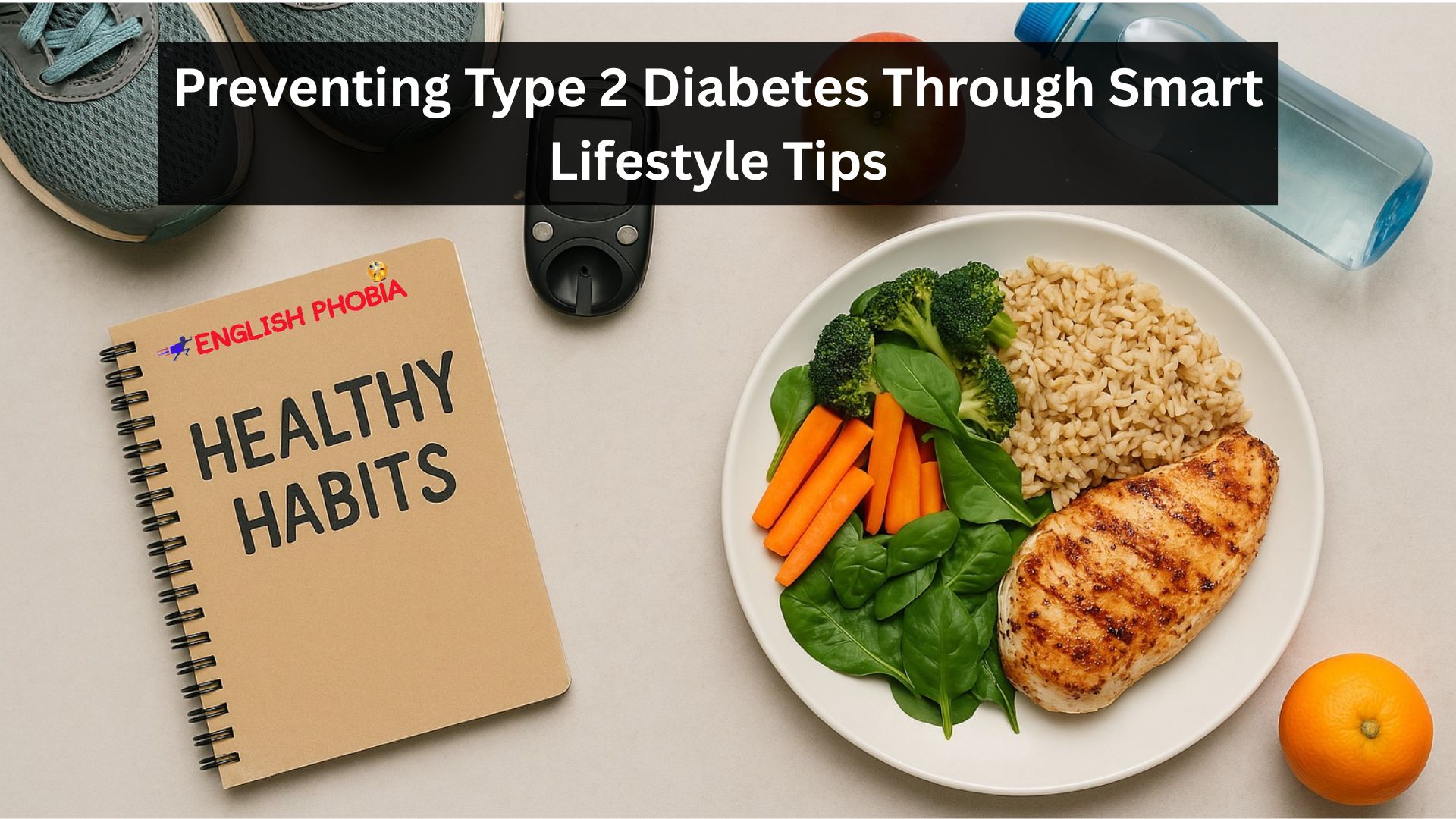Do you often feel drained, sluggish, or mentally exhausted even after a full night’s sleep? You’re not alone. Millions of people experience persistent tiredness, and one of the biggest but most overlooked causes is Chronic Fatigue and Diet.
Your daily food choices can either fuel your body with lasting energy or leave you feeling constantly fatigued. Many people blame their exhaustion on lack of sleep or stress, but the real culprit could be sitting right on their plate.
In this article, we’ll explore the Diet and Fatigue Connection, uncover the Foods That Make You Tired, and offer practical solutions through a Chronic Fatigue Diet Plan to help you regain your energy.
Understanding Chronic Fatigue and Its Dietary Triggers
What is Chronic Fatigue?
Chronic fatigue is not just regular tiredness. It’s a condition where you feel exhausted even after resting. According to the World Health Organization (WHO), chronic fatigue is a growing issue, affecting people worldwide due to poor diet, stress, and lifestyle choices.
But why does this happen? The answer lies in your nutritional intake. A poor diet can disrupt your metabolism, cause blood sugar spikes, and lead to long-term energy crashes.
How Diet Affects Energy and Fatigue
Your food directly impacts how your body produces and uses energy. Here’s how:
1) Nutritional Deficiencies and Fatigue
A lack of essential vitamins and minerals can make you feel exhausted. Some of the most common deficiencies linked to fatigue include:
- Iron Deficiency: Leads to low oxygen supply in the blood, causing sluggishness.
- Vitamin B12 Deficiency: Affects nerve function and energy production.
- Magnesium Deficiency: Causes muscle weakness and tiredness.
Solution: Include leafy greens, nuts, seeds, and lean proteins in your diet to prevent deficiencies.
2) Blood Sugar Imbalance and Tiredness
Eating too many refined carbohydrates (white bread, sugary cereals, pastries) causes sudden spikes in blood sugar, leading to a crash later. This is why you might ask, “Why am I always tired even after eating?“
Solution: Switch to complex carbs like whole grains, legumes, and fiber-rich vegetables to maintain steady energy levels.
3) Hidden Food Allergies and Fatigue
Certain food sensitivities can cause chronic inflammation, leading to fatigue. Some common culprits include:
- Gluten – Found in wheat, barley, and rye.
- Dairy – Can cause digestive distress in lactose-intolerant individuals.
- Processed Foods – Full of preservatives and artificial ingredients that slow down metabolism.
Solution: Keep a food diary to track which foods leave you feeling tired. Try an elimination diet if needed.
Foods That Make You Tired
Surprisingly, some of the foods you eat daily might be making you feel exhausted instead of energized. Here’s a list of the worst offenders:
i) High-Sugar Foods
Soda, candy, and sweetened drinks cause blood sugar spikes followed by crashes.
ii) Fried and Processed Foods
Burgers, fries, and packaged snacks are heavy to digest, diverting energy from the rest of your body.
iii) Refined Carbs
White bread, pasta, and pastries give quick energy but lead to crashes within hours.
iv) Alcohol and Caffeine Overload
Alcohol disrupts sleep, while too much coffee leads to adrenal exhaustion over time.
Best Diet to Fight Chronic Fatigue: Replace these with whole foods like fresh fruits, vegetables, lean proteins, and healthy fats.
Chronic Fatigue Diet Plan: What to Eat for All-Day Energy
Now that you know what to avoid, let’s focus on Energy-Boosting Foods that will help you stay active throughout the day.
Breakfast:
- Oatmeal with nuts and seeds
- Greek yogurt with fresh berries
- Scrambled eggs with whole-grain toast
Lunch:
- Grilled salmon with quinoa and spinach
- Chickpea salad with olive oil dressing
Dinner:
- Stir-fried tofu with brown rice
- Lentil soup with whole-grain bread
Snacks:
- Handful of almonds or walnuts
- Dark chocolate (70% cocoa)
How to Overcome Chronic Fatigue with Smart Dietary Choices
The Science Behind Diet and Fatigue Connection
Now that we’ve covered how certain foods contribute to chronic fatigue, let’s focus on how to fix it.
According to the World Health Organization (WHO), more than 40% of adults worldwide experience persistent tiredness due to nutritional imbalances. This means that what you eat daily directly impacts your energy levels.
By making the right dietary choices, you can regain your vitality, improve focus, and prevent long-term fatigue-related health issues.
Best Diet to Fight Chronic Fatigue
To beat chronic fatigue, follow these simple but effective dietary strategies:
1) Prioritize Energy-Boosting Foods
To maintain high energy levels, you need nutrient-dense foods that fuel your body without causing crashes.
i) Iron-Rich Foods: Spinach, lentils, and lean meats to prevent anemia.
ii) Protein Sources: Eggs, fish, tofu, and legumes for sustained energy.
iii) Healthy Fats: Avocados, nuts, and seeds to support brain function.
iv) Complex Carbohydrates: Whole grains, brown rice, and oats for steady glucose levels.
v) Hydrating Foods: Coconut water, fresh fruits, and herbal teas to prevent dehydration fatigue.
Pro Tip: Make a habit of drinking enough water throughout the day, as dehydration is a major cause of tiredness.
2) Control Blood Sugar Imbalance and Tiredness
If you often feel tired after meals, your blood sugar levels might be spiking and crashing.
How to Maintain Steady Energy Levels:
Avoid: Sugary drinks, processed snacks, and white bread.
Include: Fiber-rich vegetables, whole grains, and lean proteins.
Smart Swap: Instead of sugary cereals, try oatmeal with nuts and berries for breakfast.
3) Identify Hidden Food Allergies and Fatigue
Many people unknowingly suffer from food sensitivities that make them feel constantly exhausted.
Common Food Allergens That Cause Fatigue:
- Gluten (found in wheat products)
- Dairy (milk, cheese, yogurt)
- Soy and Processed Foods
If you suspect a food intolerance, try an elimination diet and observe how your body responds.
Expert Tip: Consult a nutritionist or doctor for allergy testing if you experience chronic fatigue with digestive issues.
Lifestyle Changes to Boost Energy Levels
1) Get Enough Sleep
Your diet can only do so much if you are not getting proper rest. Aim for 7-9 hours of quality sleep per night.
2) Stay Active with Light Exercise
Gentle workouts like yoga, walking, or stretching can boost your metabolism and combat fatigue naturally.
3) Reduce Stress Through Mindful Eating
Stress causes emotional exhaustion, which worsens fatigue. Eating mindfully and practicing deep breathing can improve digestion and energy absorption.
Chronic Fatigue Diet Plan: A Sample Daily Meal Guide
To help you get started, here’s a simple yet effective meal plan to fight fatigue:
Breakfast
Scrambled eggs with spinach and whole-grain toast
Oatmeal with nuts, berries, and a spoon of honey
Lunch
Grilled salmon with quinoa and steamed veggies
Chickpea salad with olive oil and lemon dressing
Snack
Handful of almonds and walnuts
Greek yogurt with flaxseeds and honey
Dinner
Lentil soup with whole-grain bread
Stir-fried tofu with brown rice and veggies
Bonus Tip: Avoid eating heavy meals close to bedtime to prevent nighttime fatigue and sluggishness.
Final Thoughts: Regain Your Energy Through the Right Diet
If you’ve been asking, “Can diet cause chronic fatigue syndrome?“, the answer is a definite yes.
Your energy levels are directly linked to what you eat. By avoiding fatigue-triggering foods and following a nutrient-rich diet, you can reverse chronic tiredness and feel more energetic every day.
Remember: Small dietary changes can make a big difference in your daily energy and overall well-being.
Start today and take control of your health, vitality, and energy levels!











